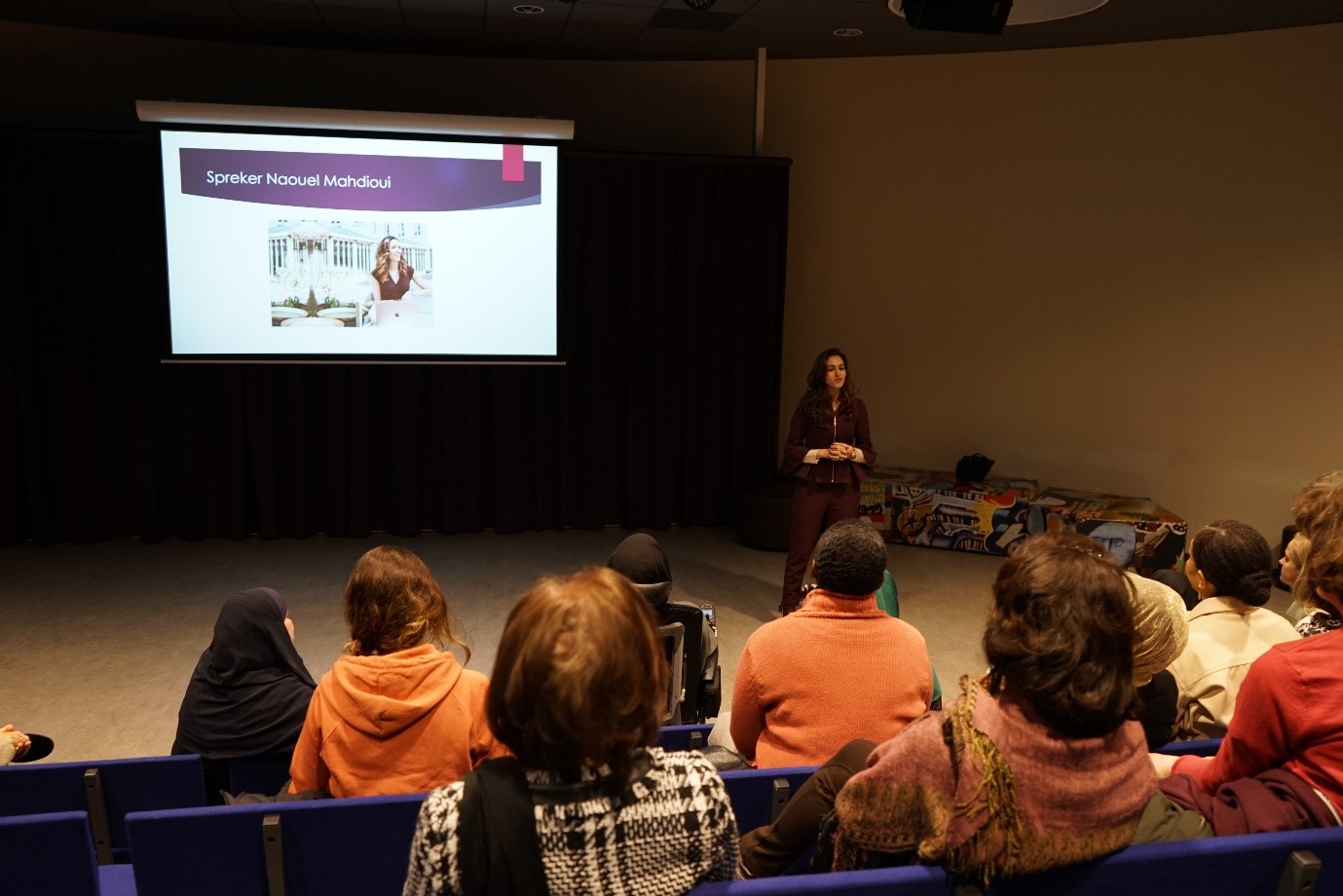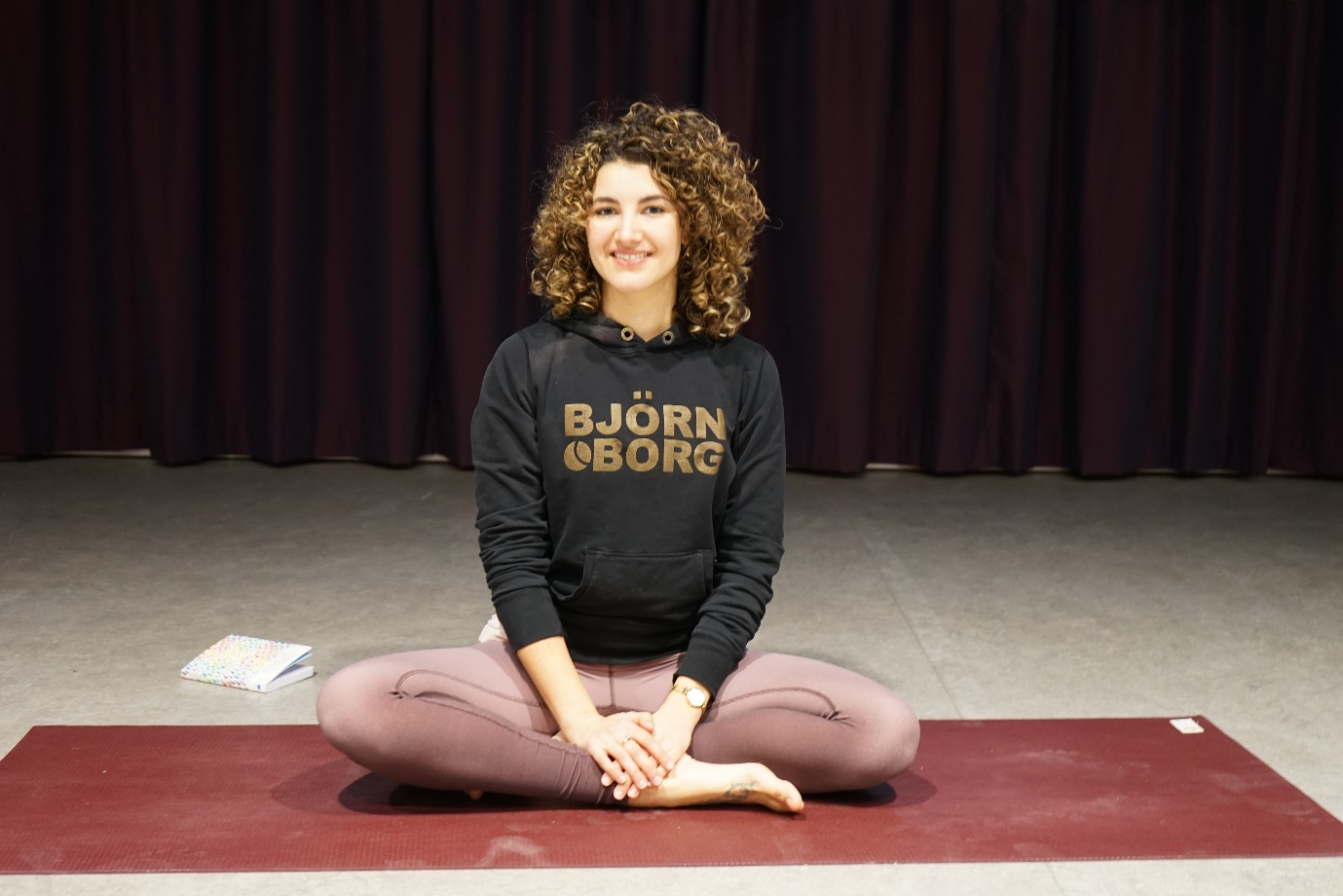By Stella Roos Peters
8 March 2020 was International Women’s Day, on which women made their voices heard around the world. Women and men around the world participated in protests, marches, and demonstrations calling for gender justice in all its forms. The topics at the forefront were equal pay, equal opportunity, holding gender violence accountable, autonomy, and dismantling harmful stereotypes in popular culture and the media.
In short, freedom for women should not be negotiable but a given. Today women still face many limitations trying to reach their full potential. These limitations, although products of patriarchy, might be self-imposed or enforced by women as well.
How can we think ourselves free when society has shaped our very expectations?
The Women of Nieuw-West Amsterdam
In Nieuw-West Amsterdam, a multicultural neighborhood, an inspirational afternoon was set up to discuss these concepts of self-expression and authenticity. How can women achieve the freedom to become the best versions of themselves? In a city that prides itself on creativity, pragmatism, and innovation, the people whose voices have been stifled find it especially difficult to be visible.
A small group of women is gathered around the coffee table at the center. Unsure of what to expect, the small talk turns into a discussion of what has brought them here. Demanding family members, difficulties getting ahead in the workplace, and recovery after burn-outs are frequently mentioned. A common thread is how too many women prioritize the care of others until they have reached the end of their rope.
The coordinator of the event and community worker, Gaby, explains that many women here feel unsupported in their efforts to be their best selves. This might not even be a conscious effort on part of others, but a result of their social surroundings or cultural contexts. In some of their cultural backgrounds, being born female has meant less space to develop outside of simply being a domestic nurturer. Anything more is taken less seriously. Ambition beyond traditional roles is often unsupported, discouraged or even outright mocked. The role of caretaker of the family is supposed to be enough.

Think yourself free
A life coach gets right down to it at the start of the inspirational afternoon. The talk is aimed at bicultural women (those who live in The Netherlands but were born elsewhere, or whose parents were born elsewhere). The coach emphasizes that just focusing on caring for others and disregard for your own wants and needs does not lead to happiness for anyone. Women are taught from a young age to be empathetic and keep others in mind. This is a beautiful value that we should all strive for, but it becomes harmful if it turns into compliance to other’s wishes at the expense of oneself.
Most of the women at the seminar have lived this experience, often bending to the demands of others’ expectations until they break down. To relieve the strain on these women, the coach offers a seemingly simple solution: “You are not your thoughts.” Women can choose not to have harmful thoughts about themselves. The coach advises: “Take the time to discover who you truly are and what you want. Taking care of others at the cost of everything else, when your heart isn’t in it, is ultimately futile. Discovering what you want and going after it will also be beneficial in the long run. By creating a balance between the wants and needs of yourself and others you are showing them that they need to value your time.”
In the context of International Women’s Day, an inspirational speech can come across as a little hollow, but it touches on a very real individual experience. Inequality is deeply ingrained in society. It inevitably has taken root in our thought patterns. Making sweeping statements in protests to improve women’s rights on a global scale is absolutely necessary. But bringing awareness to how inequality has shaped the way we think and what we expect out of life has merit too. Even small steps in the right direction leads to progress.
Talents and saluting the sun
It is evident that a little encouragement goes a long way. The women discuss excitedly how they can have the strength and will to change their lives. To seize on the positive energy, the afternoon workshops are centered on discovering your talents, getting to know yourself, and relaxation.
Changing how you think about yourself starts with recognizing your talents. The initial excitement fades somewhat. Describing your talents can be hard for women who have received little encouragement. Staying humble and not taking up too much space is expected, abd changing this behavior is not easy. The coach encourages valuing and taking pride in oneself.
In the short sessions, the key is presented as looking at yourself in an unbiased way. Stop thinking of successes and failures and start smaller. Consider what you do that does not cost you any effort at all. The coach offers an example: “If you are great at making apple pies with no concern for the recipe, your innate talent is cooking. It also demonstrates your creativity.” After that talents are easier to grasp. Instead of thinking of Mozart-level musical genius, talent is found in everyday life and can be used as an asset.
After the hard work of re-conceptualizing the time has come for relaxation. In the yoga session the women are reminded of their strength and power. It is good to take a break every once in a while, to take the time to recharge and practice self-care for the mind, body and soul. Change may not happen overnight, but after the last sun salutation, these women are ready to face the next day with a fresh perspective and positive mindset.


